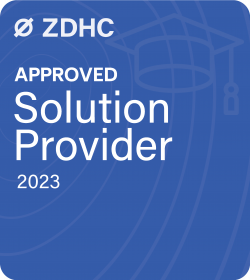Freudenberg: Sant’Omero site implements ZDHC
Freudenberg Performance Materials Apparel Europe (Freudenberg) has reached a further sustainability milestone: The new Freudenberg Apparel Competence Center in Sant’Omero, Italy, successfully completed the 4sustainability® Chemical Management protocol (4s CHEM) recently and reached the Advanced Level. The aim of the protocol is to progressively eliminate toxic and hazardous chemicals and related risks throughout the production process.
Competence center for interlinings
Freudenberg opened its Apparel Competence Center in Sant’Omero in May 2023. The factory in Italy is an innovative competence center that coats and finishes nonwoven, woven and weft interlinings for apparel customers in Europe.
Freudenberg has now taken the next logical step: as part of a comprehensive audit, the Apparel Competence Center has implemented ZDHC guidelines in its production process. To achieve this, Freudenberg called in the experts from Process Factory, a consultancy that specializes in sustainability topics. With their support, Freudenberg’s Sant’Omero site has reached the Advanced level of the 4sustainability® Chemical Management protocol (4s CHEM), in line with the ZDHC Roadmap to Zero Program.
Implementation is controlled annually based on this protocol and offers companies in the fashion industry a degree of reliability. It guarantees structured, fully transparent procedures, regular monitoring, and continuous control of Freudenberg’s production processes.
ZDHC
By demonstrating its rejection of environmentally harmful chemicals and substances, the Apparel Competence Center shows that Freudenberg gives top priority to taking responsibility for people and the environment.
The aim of the Zero Discharge of Hazardous Chemicals (ZDHC) Foundation and its globally recognized Roadmap to Zero Program is to eliminate the release of toxic chemicals in the textile and fashion industry’s supply chain based on the ZDHC Manufacturing Restricted Substances List (ZDHC MRSL).
By applying the 4s CHEM protocol, the production site in Sant’Omero is sending a clear signal to the fashion industry that Freudenberg products meet the highest quality standards and are also safe and environmentally friendly.
Freudenberg Performance Materials Holding GmbH









